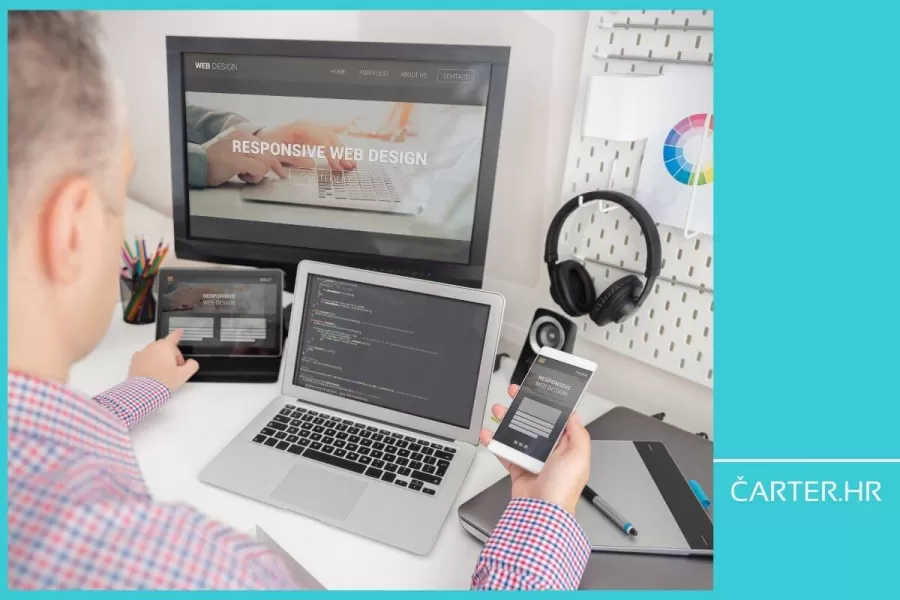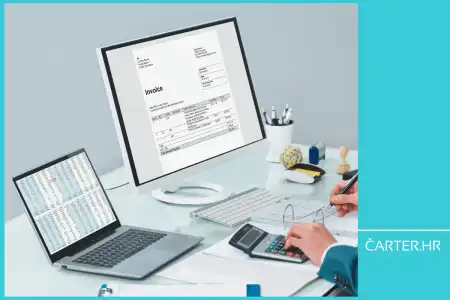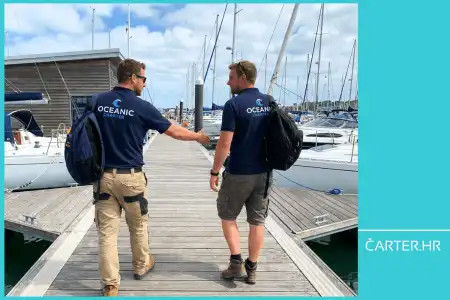
- 25.09.2023.
- News, Web design
In the digital world, a responsive website is a must-have for any boat rental business. It ensures a seamless, user-friendly experience across all devices, boosting mobile and organic traffic. This leads to higher conversion rates as users can easily explore boat options and pricing. Do you have a responsive web or you still stuck in the "old ways"?
It's known that an online presence can make or break a business.
Some types of companies and businesses don't even exist in the physical world, so to speak. They live only online.
So, being out there, in the digital world requires one thing to be done perfectly – your website.
And it must be well-designed. But above all, it has to be responsive.
This holds true also when designing a website for your boat rental.
Responsive web design should be and is – a must. So, aim for a design approach that works seamlessly across various devices and screen sizes.
But what are the advantages of such a website? What should a responsive web design be?
Improved user experience and mobile traffic
People today are, to a great extent, very tech-savvy. Our smartphones, tablets and other devices are extensions of ourselves. So, you can imagine why delivering an impeccable user experience across all these devices is non-negotiable.
Responsive web design is the hero of this story, seamlessly moulding your website's layout and content to match various screen sizes.
Whether potential guests visit your boat rental website on their desktop, smartphone, or tablet, they're in for a consistently enjoyable and user-friendly journey.
Let's put this into perspective. Imagine someone planning their next vacation. They hear from their colleague how they have rented a boat for a week (or two) and spent the most peaceful and best vacation ever. What will they do but take out their smartphone during lunch to explore boat rental options?
Thanks to responsive design, your website greets them with clear navigation, images that elegantly adjust to their screen, and legible text.
Their curiosity is piqued, and they explore more, checking out boat choices and pricing details. Later, they might explore more on their work desktop or a laptop at home.
The smooth experience entices them to explore further, expanding chances of converting them from a browser to a customer.
Moreover, Google, the "mastermind" behind online visibility, simply loves mobile-friendly websites.
With responsive design, your website not only provides a seamless user experience but also climbs higher on search result rankings.

Faster website development
At some point, which now seems like a long time ago, businesses had to keep separate websites for desktop and mobile users. Which truly was a time-consuming and effort-intensive process for updates.
When single adaptable website design came to be, responsive web design became essential.
For businesses in the service and hospitality industry, agility is key. A restaurant that wants to add online ordering or a yacht charter company that wishes to implement a new booking platform needs a website that can adapt rapidly. Traditional development approaches may delay these crucial updates, impacting the bottom line.
However, businesses can quickly pivot to meet changing customer needs by prioritising faster website development.
Online ordering systems and new booking systems can be integrated in no time. This agility not only keeps customers and guests satisfied but also ensures that you remain able to reach clients in a competitive and ever-changing market.

Better SEO ranking and higher conversion rates
SEO - Search Engine Optimisation - makes your website seen and heard online.
Google's complex algorithms consider many factors, like mobile-friendliness and page loading speed, to decide where your site lands in search results.
Responsive web design effortlessly handles these essential elements, ensuring your website loads fast and provides a seamless user experience on any device.
In the past, without responsive design, mobile visitors might have suffered from slow load times or a clunky layout. But with responsive design, your website instantly fits any screen.
This means visitors can navigate effortlessly, exploring your boat offerings and rental details.
As your boat rental website climbs the ranks in search results, it draws in more organic traffic – people actively looking for yacht charters.
This inflow of visitors can translate into more bookings and reservations, propelling your business forward. And that's not all.
Thanks to responsive design, visitors enjoy a refined user experience, making them more likely to become paying customers. When they effortlessly interact with your content, the chances of them making reservations expand multifold.

Lower maintenance needs
Imagine overseeing a dynamic boat rental business where swift updates are essential to reflect changes in vessel inventory, pricing adjustments, and enticing promotions.
In the past, maintaining separate desktop and mobile versions required meticulous synchronisation to avoid inconsistencies. Today, this has become a smooth process.
For example, introducing a new boat model to your fleet becomes effortless - you update the details once, and they instantly show across all devices, eliminating the need to align content updates.
This allows you to redirect your time and effort towards enhancing your boat rental business.
In essence, responsive web design becomes a maintenance advantage. It ensures that updates are done uniformly across devices.
It's not just about aesthetics and the use of multimedia; it's a functional masterpiece that creates an inviting online hub for potential customers, regardless of their device.
The smoother the user experience, the more likely visitors will explore your boat rental offerings, making responsive design an indispensable tool for your digital presence.
FAQ
How does responsive web design improve user experience?
Responsive web design improves user experience by adapting a website's layout, content, and functionality to different screen sizes and devices.
This ensures visitors have a consistent and user-friendly experience regardless of whether they access the site from a desktop, smartphone, or tablet.
What problem does responsive design solve?
Responsive design solves the problem of inconsistent user experiences across devices. Before responsive design, businesses often had to create separate websites for desktop and mobile users, leading to fragmented content and maintenance challenges.
Responsive design streamlines this process by creating a single, adaptable website that works seamlessly on all devices.
What is the difference between responsive and fluid web design?
Responsive web design and fluid web design both aim to create user-friendly experiences across devices, but they approach it differently.
Responsive design adapts to different screen sizes by rearranging content and adjusting the layout. Fluid design, on the other hand, maintains consistent proportions as the screen size changes, often resulting in more flexible and fluid layouts.
Categories of trends
- News
- Sale
- Marketing
- SEO
- Web design
- Social media
- Technology
- Regulations
- Management
- Education
- Finances
- User experience
Newsletter
Sign up for the newsletter and receive the latest trends and tips straight to your inbox



